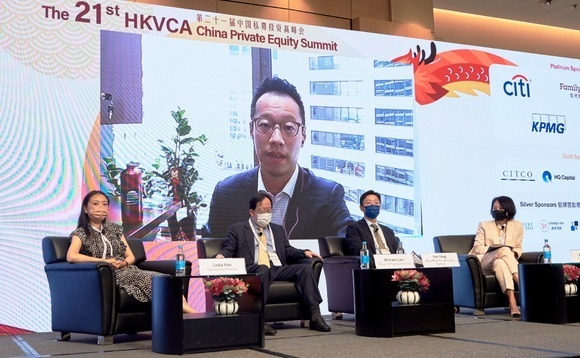
LPs emphasize differentiation in China venture capital

LPs want to back Chinese venture capital firms that are differentiated from their peers, although there remains an element of discomfort with efforts to achieve this through increasingly popular China-plus strategies.
Lydia Hao, a managing director at HarbourVest Partners, told the Hong Kong Venture Capital & Private Equity Association’s (HKVCA) China forum that managers on their first or second funds should have a well-articulated strategy around building a portfolio in uncertain times. She is sceptical about “knee-jerk reactions” to current market conditions such as targeting cross-border deals.
Even though HarbourVest is seeing more GPs shift focus in this way – for example, setting up offices in Southeast Asia with a view to investing in start-ups with business models that are proven in China – the enduring question is why they think they can be successful in new markets.
“Why does the GP think it can do Indonesia, Singapore, and Southeast Asia, or Brazil and South America, as a China team? What local capabilities will you build around that thematic?” said Hao.
China VC fundraising has arguably never been harder following unprecedented domestic regulatory uncertainty across different technology verticals and substantial corrections in listed tech stocks globally. Some LPs are holding off on new commitments – often restricting themselves to select re-ups – until the market outlook becomes clearer.
VC managers raised USD 8.5bn in 2021, down from USD 10.7bn a year earlier, AVCJ Research’s records show. Around 60% of the capital was secured in the first six months, prior to a reclassification of tech-enabled tuition platforms as non-profit and the introduction of additional oversight for offshore IPOs.
Fundraising in the first half of 2022 amounted to just USD 1.7bn, although established managers like Qiming Venture Partners and Sequoia Capital China closed bumper funds early in the second half of the year.
Several LPs speaking at the HKVCA event observed that GPs should establish where they have a competitive advantage and use it as the basis for an investment thesis. This has become a key part of manager due diligence as LPs not only emphasize distributions and liquidity, but also look for situations where internal capabilities were the driving factor rather than exposure to broad market trends.
Michael Lam, a principal at Chow Tai Fook Enterprises, a private investment holding company under family-owned Hong Kong conglomerate Chow Tai Fook, noted that some China-based venture capital firms have become so large and successful that they are seemingly omnipresent. “I say to my team, ‘What is the alpha from this GP in every deal?’” he explained
Lam added that, in recent years, some managers have made significant transitions from being consumer internet-centric to investing more in hard-tech and semiconductors. While nimbleness is generally desirable, it should be accompanied by relevant expertise.
BlackRock Private Equity Partners has been actively digging into track records for evidence of early-stage investors identifying investment opportunities before they became widely recognised or leveraging their networks to find ways into oversubscribed funding rounds.
“We want to partner with GPs that can identify trends early and identify companies and persuade them to become partners. A lot of these 2B companies can be profitable, so they are very careful in picking partners,” said Yan Yang, a managing director at BlackRock.
Communication with LPs – telling the story behind the pitchbook so these nuanced approaches to sourcing become clear – is also essential. According to Yang, GPs must be willing to travel and meet investors in person given the difficulties visiting China. Moreover, they should be patient. “Globally, LPs are taking time because the opportunity cost of missing out is lower these days,” said Yang.
HarbourVest’s Tam added that most successful GPs have built internal capabilities and processes to facilitate this communication. “We are spending a lot of time on portfolio monitoring, more frequent update calls with GPs to understand the state of portfolios,” she said, adding that the priority for established managers should be portfolio management and keeping LPs happy and engaged.
Latest News
Asian GPs slow implementation of ESG policies - survey
Asia-based private equity firms are assigning more dedicated resources to environment, social, and governance (ESG) programmes, but policy changes have slowed in the past 12 months, in part due to concerns raised internally and by LPs, according to a...
Singapore fintech start-up LXA gets $10m seed round
New Enterprise Associates (NEA) has led a USD 10m seed round for Singapore’s LXA, a financial technology start-up launched by a former Asia senior executive at The Blackstone Group.
India's InCred announces $60m round, claims unicorn status
Indian non-bank lender InCred Financial Services said it has received INR 5bn (USD 60m) at a valuation of at least USD 1bn from unnamed investors including “a global private equity fund.”
Insight leads $50m round for Australia's Roller
Insight Partners has led a USD 50m round for Australia’s Roller, a venue management software provider specializing in family fun parks.








